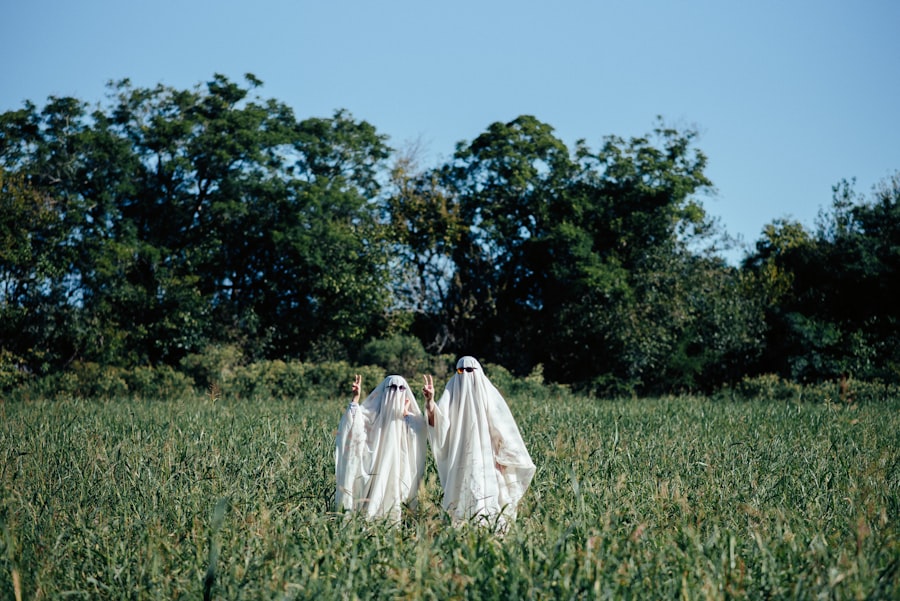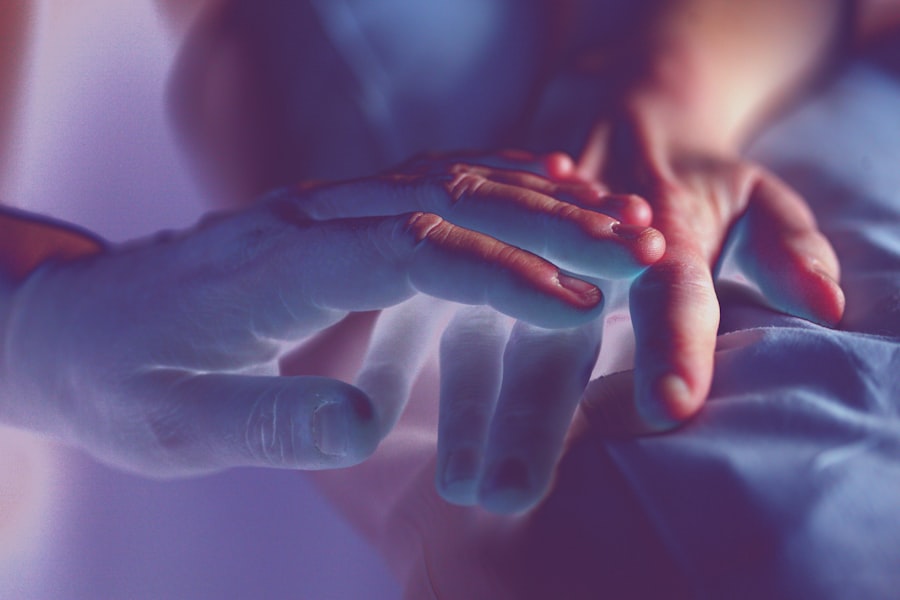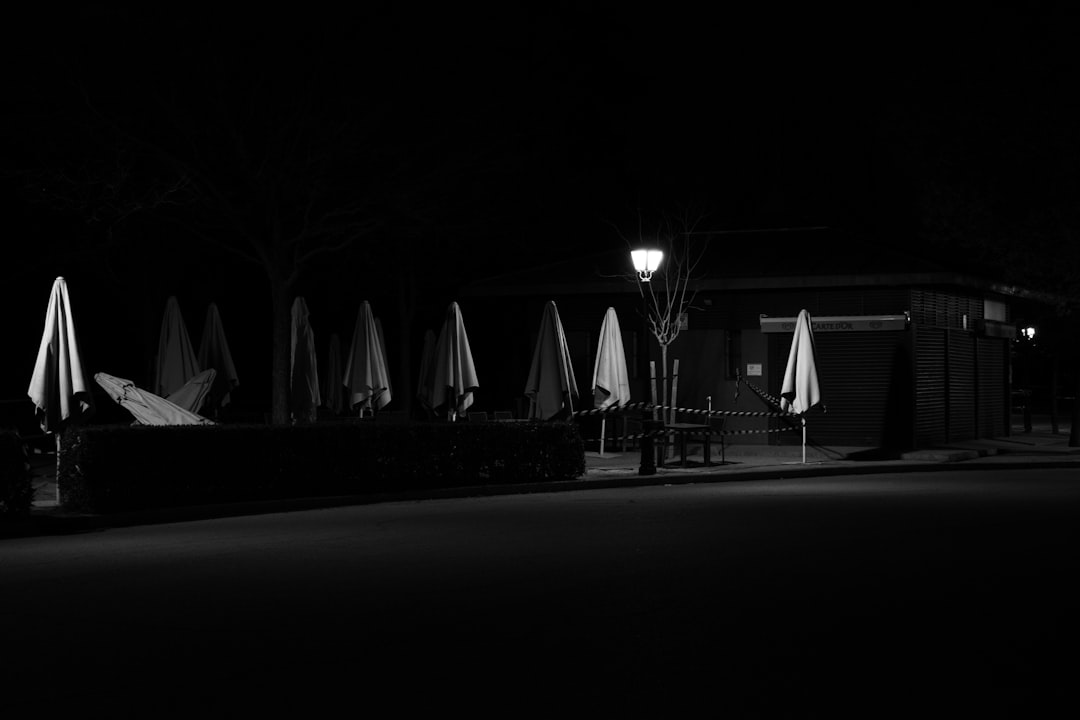Paranormal phenomena have long captivated the human imagination, stirring curiosity and fear alike. You may find yourself drawn to tales of ghostly apparitions, unexplained sounds, and eerie sensations that defy logical explanation. These experiences often blur the lines between reality and the supernatural, prompting you to question what lies beyond the veil of the known world.
Whether you are a skeptic or a believer, the allure of the paranormal invites you to explore the mysteries that linger in the shadows of our existence. As you delve into the realm of the paranormal, you will encounter a rich tapestry of stories and experiences that span cultures and centuries. From ancient folklore to modern ghost-hunting shows, the fascination with what lies beyond death continues to thrive.
You may wonder why these phenomena resonate so deeply within you, as they tap into fundamental questions about life, death, and what may come after. The exploration of paranormal phenomena is not merely an academic pursuit; it is a journey into the unknown that challenges your perceptions and ignites your imagination.
Key Takeaways
- Paranormal phenomena encompass a wide range of unexplained experiences and occurrences that challenge our understanding of the natural world.
- The history of ghosts and hauntings dates back to ancient civilizations, with stories and beliefs evolving over time.
- Various theories and explanations for ghostly encounters include psychological, spiritual, and scientific perspectives.
- Investigating paranormal activity involves the use of tools such as EMF meters, EVP recorders, and infrared cameras, as well as techniques like data analysis and documentation.
- Debunking common myths and misconceptions about ghosts is essential for promoting a more rational and informed approach to paranormal research and investigation.
The History of Ghosts and Hauntings
The history of ghosts and hauntings is as old as humanity itself. You might be surprised to learn that accounts of spectral beings can be traced back to ancient civilizations, where they were often seen as messengers from the afterlife or manifestations of ancestral spirits. In cultures around the world, ghosts have been depicted in various forms, from benevolent guardians to vengeful spirits seeking retribution.
This rich historical context provides a fascinating backdrop for your exploration of the paranormal. As you examine historical texts and folklore, you will discover that beliefs about ghosts have evolved over time. In medieval Europe, for instance, ghosts were often associated with purgatory, where souls lingered until they could ascend to heaven.
You may find it intriguing that these beliefs influenced societal attitudes toward death and the afterlife, shaping rituals and customs surrounding mourning and remembrance. The stories of hauntings that emerged during this period often served as cautionary tales, warning individuals about the consequences of their actions in life. This historical perspective not only enriches your understanding of ghosts but also highlights the enduring human fascination with what lies beyond.
Theories and Explanations for Ghostly Encounters

When it comes to ghostly encounters, various theories attempt to explain these mysterious phenomena. You may find yourself pondering whether these experiences are rooted in psychological, environmental, or even spiritual factors. One prevalent theory suggests that ghosts are manifestations of unresolved emotions or traumatic events.
In this view, spirits may linger in places where they experienced significant pain or loss, seeking closure or resolution. This perspective invites you to consider how personal histories can shape our perceptions of the supernatural. Another intriguing explanation revolves around the concept of energy.
Some researchers propose that ghosts are forms of energy that can be released or trapped in certain locations. You might be fascinated by the idea that places with intense emotional experiences—such as battlefields or sites of tragedy—could harbor residual energy that manifests as ghostly encounters. This theory encourages you to think about the interconnectedness of human experiences and the environment, suggesting that our emotional states can leave an imprint on the world around us.
Investigating Paranormal Activity: Tools and Techniques
| Tools and Techniques | Metrics |
|---|---|
| EMF Meters | Number of readings taken |
| Voice Recorders | Hours of audio recorded |
| Thermal Cameras | Number of anomalies detected |
| Motion Sensors | Number of activations |
If you are intrigued by the idea of investigating paranormal activity, you will find that a variety of tools and techniques are employed by enthusiasts and researchers alike. One common instrument is the electromagnetic field (EMF) meter, which measures fluctuations in electromagnetic fields that some believe are associated with ghostly presences. As you explore this aspect of paranormal research, you may be surprised by how technology has evolved to aid in these investigations.
In addition to EMF meters, you might encounter devices such as digital voice recorders used for capturing electronic voice phenomena (EVPs). These recordings often reveal unexplained voices or sounds that cannot be attributed to any known source. You may also come across infrared cameras and thermal imaging devices designed to detect temperature changes in haunted locations.
As you familiarize yourself with these tools, you will gain insight into how investigators approach their work with a blend of skepticism and curiosity, striving to uncover evidence of the supernatural while remaining grounded in scientific inquiry.
Debunking Common Myths and Misconceptions about Ghosts
As you navigate the world of paranormal phenomena, it is essential to debunk common myths and misconceptions about ghosts. One prevalent belief is that all ghosts are malevolent entities seeking to harm the living. In reality, many reported encounters involve benign spirits or even helpful apparitions.
You may find it enlightening to consider that cultural narratives often shape our perceptions of ghosts, leading to exaggerated fears that do not reflect the full spectrum of experiences. Another misconception is that ghostly encounters are solely products of imagination or hallucination. While psychological factors can play a role in how individuals perceive paranormal events, there is a wealth of anecdotal evidence suggesting that many people have experienced encounters they cannot easily dismiss.
By examining these myths critically, you can cultivate a more nuanced understanding of ghostly phenomena—one that acknowledges both the psychological aspects and the potential for genuine experiences beyond our current understanding.
The Psychology of Ghostly Experiences

The psychology behind ghostly experiences is a fascinating area of study that delves into how our minds interpret and respond to the unknown. You may find it intriguing to explore how factors such as stress, grief, and cultural background influence your perception of paranormal events. For instance, individuals who have recently experienced loss may be more susceptible to sensing a presence or feeling connected to a deceased loved one.
This emotional lens can shape your interpretation of ghostly encounters, leading you to perceive them as comforting or unsettling based on your personal circumstances. Moreover, cognitive biases play a significant role in how you interpret ambiguous stimuli. When faced with unexplained phenomena, your brain may seek patterns or familiar explanations, leading you to attribute certain experiences to ghostly encounters rather than considering alternative explanations.
This psychological framework invites you to reflect on how your beliefs and emotions can shape your understanding of reality, encouraging a deeper exploration of both your inner world and the mysteries that lie beyond.
Famous Haunted Locations and Their Stories
As you embark on your journey through the world of ghosts, you will encounter numerous famous haunted locations steeped in history and intrigue. One such place is the Tower of London, where tales of tortured souls and ghostly apparitions abound. You may be captivated by stories of Anne Boleyn’s spirit wandering the grounds, her tragic fate echoing through time.
The rich tapestry of history surrounding such locations adds depth to your exploration of the paranormal. Another iconic haunted site is the Stanley Hotel in Colorado, famously known as the inspiration for Stephen King’s “The Shining.” As you learn about its haunted history—complete with reports of ghostly children playing in the halls and mysterious piano music echoing through empty rooms—you may find yourself drawn into the stories that have shaped its reputation. These locations serve as portals into the past, inviting you to consider how history intertwines with personal experiences and collective memory in shaping our understanding of ghosts.
The Role of Technology in Studying Paranormal Phenomena
In recent years, technology has played an increasingly vital role in studying paranormal phenomena. You might be fascinated by how advancements in audio and visual equipment have transformed ghost hunting from a purely anecdotal pursuit into a more systematic investigation. High-definition cameras and sophisticated audio recording devices allow researchers to capture evidence that was once elusive, providing a new lens through which to examine ghostly encounters.
Moreover, online platforms and social media have created communities where enthusiasts can share their findings and experiences with a global audience. As you engage with these communities, you will discover a wealth of information ranging from personal testimonies to scientific discussions about paranormal research methods. This interconnectedness fosters collaboration among researchers and enthusiasts alike, paving the way for innovative approaches to understanding ghostly phenomena in an ever-evolving landscape.
The Ethics of Ghost Hunting and Paranormal Research
As you delve deeper into paranormal research, it is crucial to consider the ethical implications surrounding ghost hunting practices. You may find yourself grappling with questions about consent when investigating private properties or historical sites. Respecting the spaces you explore is paramount; after all, these locations often hold significant cultural or emotional value for individuals and communities alike.
Additionally, ethical considerations extend to how you present findings from your investigations. It is essential to approach your work with integrity and transparency, avoiding sensationalism that could mislead others about the nature of paranormal phenomena. By fostering a responsible approach to ghost hunting and research, you contribute positively to the broader discourse surrounding these mysterious experiences while honoring those who have come before you.
Personal Testimonies and Experiences with Ghosts
Personal testimonies play a vital role in shaping our understanding of ghosts and hauntings.
These narratives often evoke powerful emotions—fear, wonder, or even comfort—inviting you to reflect on your own beliefs about life after death.
You might also discover that personal experiences with ghosts can vary widely from person to person. Some individuals report vivid encounters with apparitions or disembodied voices, while others describe subtle sensations or feelings of being watched. These diverse accounts highlight the complexity of human perception when it comes to the paranormal, encouraging you to remain open-minded as you navigate this enigmatic realm.
The Future of Paranormal Research and Understanding Ghostly Phenomena
As you look toward the future of paranormal research, it becomes clear that this field is ripe for exploration and innovation. Advances in technology will likely continue to enhance our ability to study ghostly phenomena more rigorously than ever before. You may envision a future where interdisciplinary collaboration between scientists, psychologists, historians, and enthusiasts leads to new insights into the nature of ghosts and hauntings.
Moreover, as societal attitudes toward spirituality and consciousness evolve, so too will our understanding of what it means to encounter the supernatural. You might find it exciting to consider how emerging theories about consciousness could reshape our perceptions of life after death and inform future investigations into ghostly encounters. The journey into understanding paranormal phenomena is ongoing—a quest filled with mystery and wonder that invites you to explore not only what lies beyond but also what it means to be human in an ever-expanding universe.
In exploring the true science of ghosts, it’s fascinating to delve into the intersection of paranormal phenomena and scientific inquiry. A related article that provides intriguing insights into this topic can be found on Freaky Science’s website. This article discusses various scientific theories and experiments that attempt to explain ghostly encounters through the lens of psychology, physics, and environmental factors. For a deeper understanding of how science approaches the mystery of ghosts, you can read more about it here.
WATCH THIS! 🧠 The Brain Hack That Makes You See Ghosts!
FAQs
What is the true science of ghosts?
The true science of ghosts is the study of paranormal phenomena and the attempt to understand and explain the existence of ghosts using scientific methods and principles.
Is there scientific evidence for the existence of ghosts?
While many people claim to have had experiences with ghosts, there is currently no scientific evidence that conclusively proves the existence of ghosts.
What are some scientific theories about ghosts?
Some scientific theories about ghosts include the possibility of electromagnetic fields, infrasound, and psychological factors contributing to the perception of ghostly phenomena.
Can ghosts be studied using scientific methods?
Researchers have attempted to study ghosts using scientific methods such as controlled experiments, data collection, and analysis, but the results have been inconclusive.
What are some common explanations for ghostly phenomena?
Common explanations for ghostly phenomena include misinterpretation of natural phenomena, psychological factors, and the power of suggestion.
Are there any ongoing scientific studies on ghosts?
There are ongoing studies and research projects that attempt to investigate and understand ghostly phenomena using scientific methods, but no definitive conclusions have been reached.
